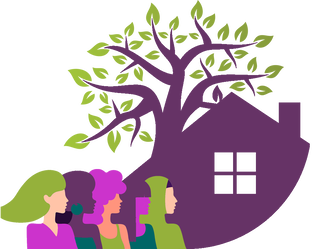|
How the Local Area Can Benefit from Women’s Residential Program and Support  Contributors: Genesis Hernandez, Brianna Ramos, and Megan Klepper Although the stigma of addiction has seemingly decreased over the past few years, why is it that we still know so little about it? Moreover, why do we know even less about women with addiction? In her 2015 article regarding Hollywood’s narrative on addiction, writer Biju Belinky describes how—regardless of the increased representation of the disease in the media—most of the stories being portrayed are those of men. Rarely are the stories of real women fighting addiction given an appropriate plot or platform. The consequences resulting from this are amplified when comparing the ever-increasing rates of substance abuse amongst women with the near-stagnant number of recovery programs specifically designed for women. Lack of awareness regarding women with addiction is clearly correlated to lack of funding for recovery services for women. This lack is most prominent in rural towns and counties that are faced with a serious rise in substance abuse among women yet have an unbalanced array of resources available to those seeking treatment. The Harrisonburg/Rockingham County area is no different. Although there are various co-ed recovery programs located in Harrisonburg, the residential programs (including Gemeinschaft Home) are often limited to male residents. There were no female recovery homes in the Harrisonburg area until the opening of Oxford House Trillium earlier in January of this year, which still holds far fewer residents than Gemeinschaft Home’s current men’s program. Whenever any attempts to expand women’s services are made, financial shortcomings eventually impede agencies and organizations’ ability to keep the programs running, as was the case in 2008 with the closing of Gemeinschaft Home’s women’s residential program as a result of the Great Recession. Since then, local women seeking treatment had to either decide between temporary displacement to larger cities like Charlottesville or Richmond—if they preferred the tighter accountability of a self-sustaining recovery home—or enrollment in non-residential co-ed programs, such as Gemeinschaft Home’s Day Reporting Center (DRC), if they desired to stay closer to home. In the latter case, they irretrievably lost the experience of recovery with a strong, female support system. However, robust female support systems have major positive impacts on women’s paths toward recovery and help them to overcome triggers such as heartbreak, motherhood, and societal chauvinism—issues that are not typically addressed in co-ed programs, because they are not considered relevant to the majority of (male) participants. The gender-based disproportion of available recovery homes creates additional hardships for women during their reentry and recovery processes. As one woman put it: “Men get this chance to get on their feet and get their own place, save money, and do what they need to do and get the help that they need, while women have no chance to start over because they don’t get the same resources.” The need for recovery homes for women is even more significant when looking at the populations of women with addiction who have also endured further trauma through issues like abusive relationships and/or single motherhood, which, again, are not addressed in co-ed programs and result in women leaving such programs without knowing how to approach or resolve troubling situations by themselves. However, women with addiction, especially at the start of their recovery, most need a support system that approaches their issues from a female perspective. Community residential settings like those at Gemeinschaft Home provide a clearly structured environment that calls on each participant to contribute to the functioning of the community. Individual accountability for those contributions leads to stronger bonds between the residents and ultimately helps them keep one another in check in case of any slip ups with treatment. This further strengthens and reaffirms the structure and values within the home and enhances the sense of responsibility, trust, and support among the residents. Many of these values are reflected in women’s programs such as the Pennsylvania-based Junction House and Thistle Farms in Nashville, Tennessee. As noted in Junction House’s website, some of the many benefits for women include the ability to “form solid sober support systems,” “transportation to outside meetings, help with case management, [facilitation of] medication, ... life or sober coaching to residents,” and even serve as a safe space for women with trauma resulting from childhood or their lifestyle of addiction “to heal, rebuild their self-esteem, and begin the work necessary to recover.” Likewise, Thistle Farms bases itself on providing female survivors of addiction, trafficking, and prostitution with a fresh start at life through their two-year program that guarantees their residents “a safe and supportive place to live, a meaningful job, and a lifelong sisterhood of support.” Recognizing the abundance of benefits of community-based residential programs, it is evident that these resources must be made accessible to women with addiction in the Shenandoah Valley and beyond. Gemeinschaft Home’s existing men’s program provides a well-tested model for women’s services. Used in tandem with the essential values of female support systems, this model can aid women on the path to recovery and, in the process, strengthen families and communities. Comments are closed.
|
Archives
August 2023
|